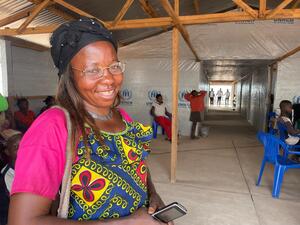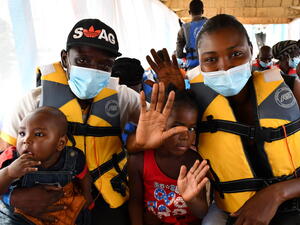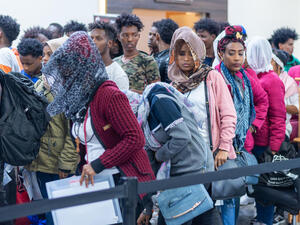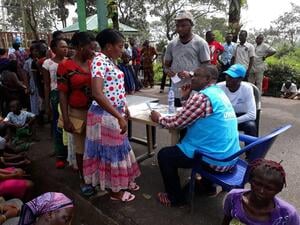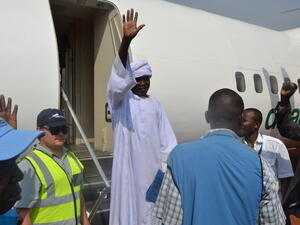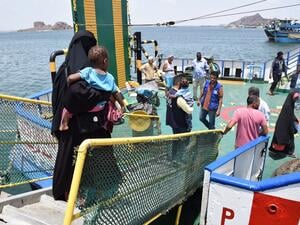Central African Republic: Latest on returns from DRC
Central African Republic: Latest on returns from DRC
More than 1,300 Central African Republic (CAR) refugees from north-west Democratic Republic of the Congo (DRC) have returned home since Monday (9 June), when UNHCR launched a repatriation programme to assist more than 2,600 CAR refugees who want to go home. The refugees are in a camp at Mole, 34 km from the small town of Zongo, on the Oubangui river.
Daily truck convoys bring refugees from Mole to Zongo, where the refugees board boats hired by UNHCR to ferry them across to the CAR capital of Bangui, less than 10 minutes away. The two boats, which carry 100 passengers each, make several rotations to bring across the returnees and their belongings. Once in Bangui, the refugees - many of them former civil servants and residents of the capital - are transported to various drop-off points in the town.
UNHCR had planned to move up to 350 refugees daily in an operation that was expected to run for eight days. However, more than the expected numbers have shown up every day, eager to return home. Yesterday, for example, we transported more than 500 refugees to Bangui. We expect to complete this repatriation this weekend, if the current pace of return continues.
This week's journey home marks the end of a two-year exile for the CAR refugees in D.R. Congo. A change of government following a coup d'état by former army chief of staff, François Bozizé in March this year and a recent amnesty to those linked with a failed coup in 2001 have facilitated their return.
CAR refugees from the Republic of Congo have also begun to return home. A first group of 57 refugees was flown home from Brazzaville, capital of the Republic of Congo on Tuesday (10 June). Weekly flights are expected to bring back some 300 people who have registered to return to Bangui.
Many of the returnees say they are happy to return home, but some are finding that their homes have been looted. To help the refugees restart their lives, UNHCR is providing a reintegration package which consists of kitchen sets, jerry cans, blankets and mats. In Bangui, they will get a food package from the World Food Programme.


